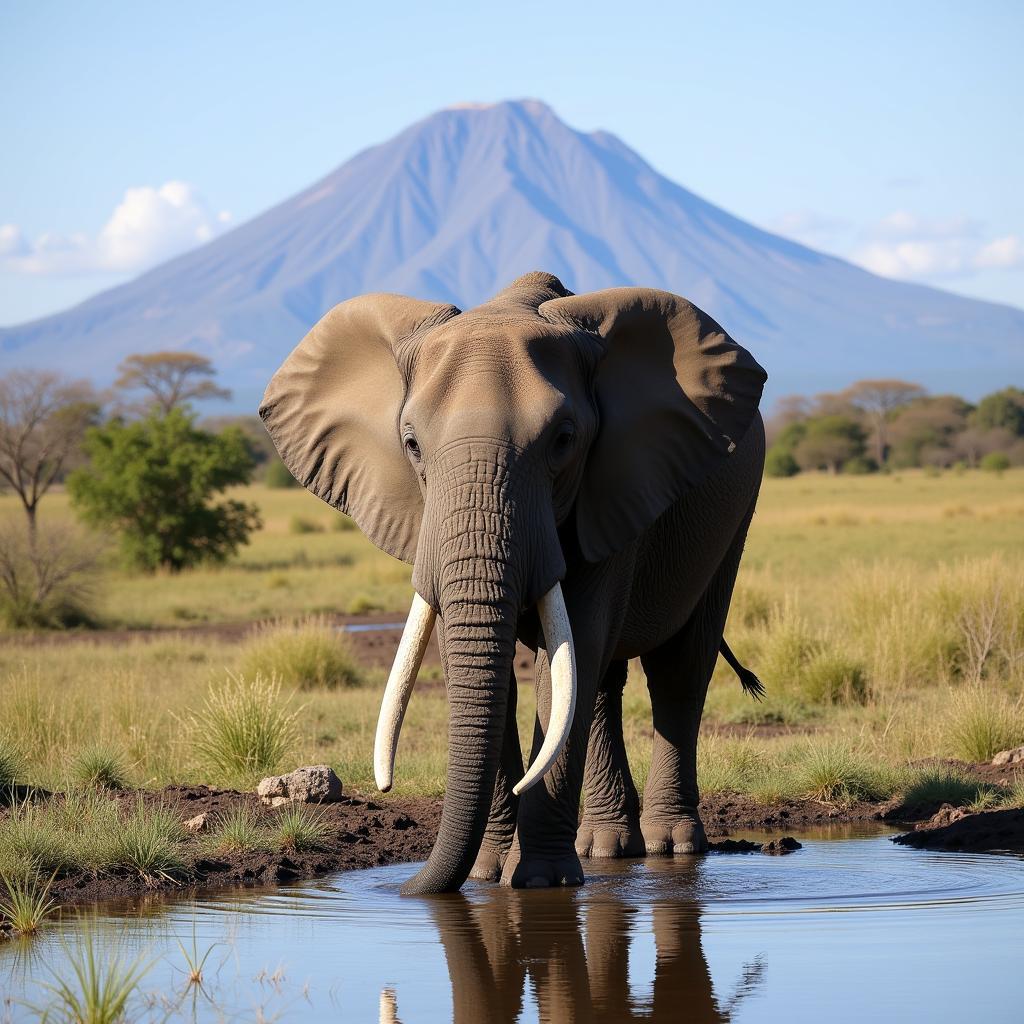The Vibrant World of African Entertainment Acts
African Entertainment Acts are renowned for their captivating energy, vibrant rhythms, and diverse artistic expressions. From traditional music and dance to contemporary film and theater, Africa’s creative industry showcases a rich tapestry of talent that has captivated audiences worldwide.
This article delves into the diverse landscape of African entertainment acts, exploring their cultural significance, evolution, and global impact. Discover the pulsating rhythms of Afrobeat, the intricate storytelling of traditional dance forms, and the rising stars of African cinema.
A Continent of Rhythms: Exploring African Music Genres
African music is as diverse as the continent itself, with a wide array of genres that reflect the unique cultural identities and historical narratives of its people. From the soulful melodies of West African Highlife to the energetic beats of South African Kwaito, each genre offers a glimpse into the heart and soul of Africa.
Afrobeat: A Global Phenomenon
Originating in Nigeria in the 1970s, Afrobeat has become a global musical force, captivating audiences with its infectious rhythms, politically charged lyrics, and energetic performances. Led by the legendary Fela Kuti, Afrobeat combines elements of jazz, funk, and traditional Yoruba music to create a sound that is both danceable and thought-provoking.
Mbalax: The Heartbeat of Senegal
Mbalax, the national music of Senegal, is characterized by its distinctive percussion, intricate rhythms, and call-and-response vocals. Rooted in the traditional music of the Wolof people, Mbalax has evolved over the years to incorporate modern instruments and influences, creating a sound that is both traditional and contemporary.
Highlife: The Soul of West Africa
Highlife music emerged in Ghana in the early 20th century, blending elements of traditional Akan music with European brass band music. Known for its sophisticated melodies, upbeat rhythms, and often romantic lyrics, Highlife became a popular genre across West Africa, with notable variations developing in countries like Nigeria and Sierra Leone.
Beyond the Music: The Power of African Dance
African dance is not merely a form of entertainment but an integral part of the continent’s cultural heritage, deeply woven into ceremonies, rituals, and social gatherings. Each dance form tells a story, conveying emotions, preserving traditions, and passing on knowledge from one generation to the next.
Gumboot Dance: From Mines to Main Stage
Originating in the gold mines of South Africa, Gumboot dance is a testament to the resilience and creativity of the human spirit. With no instruments other than their wellington boots, miners developed this percussive dance form to communicate and entertain themselves in the dark and dangerous conditions underground. Today, Gumboot dance is performed on stages worldwide, captivating audiences with its rhythmic precision and powerful storytelling.
Adumu: The Maasai Jumping Dance
Among the Maasai people of East Africa, the Adumu, also known as the “jumping dance,” is an integral part of their cultural identity and a rite of passage for young warriors. Men form a circle and take turns leaping as high as possible, showcasing their strength, agility, and bravery. The dance is accompanied by rhythmic chanting and singing, creating a captivating spectacle that celebrates Maasai culture and tradition.
African Cinema: A Rising Star on the Global Stage
African cinema has witnessed a remarkable surge in recent years, with filmmakers from across the continent gaining international recognition for their compelling stories, innovative techniques, and unique perspectives.
Nollywood: The Nigerian Film Powerhouse
Nigeria’s film industry, known as Nollywood, is one of the largest in the world, producing thousands of movies each year. Nollywood films are renowned for their direct-to-video distribution model, low budgets, and fast-paced productions, often tackling themes of love, betrayal, family drama, and social issues.
The Rise of African Film Festivals
Film festivals dedicated to showcasing African cinema have played a crucial role in promoting African filmmakers and their work to a global audience. Festivals like FESPACO in Burkina Faso, Durban International Film Festival in South Africa, and the Toronto International Film Festival’s City to City program provide platforms for African films to gain recognition, secure distribution deals, and connect with a wider audience.
Preserving Tradition, Embracing Innovation: The Future of African Entertainment Acts
African entertainment acts continue to evolve, blending traditional forms with modern influences to create innovative and captivating art forms. As the world becomes increasingly interconnected, African artists are finding new avenues to share their stories, connect with global audiences, and shape the narrative of Africa’s creative industry.
From the pulsating rhythms of Afrobeat to the intricate storytelling of traditional dance forms and the rising stars of African cinema, African entertainment acts offer a vibrant tapestry of creativity and cultural expression. Their impact extends far beyond the continent, captivating audiences worldwide and leaving an undeniable mark on the global stage.
FAQs
What are some of the most popular African music genres?
Some of the most popular African music genres include Afrobeat, Mbalax, Highlife, Juju music, Kizomba, and Kwaito.
Where can I watch African films?
You can watch African films at film festivals dedicated to African cinema, online streaming platforms, and select theaters.
What is the significance of dance in African culture?
Dance in African culture is not merely entertainment; it is an integral part of ceremonies, rituals, and social gatherings, conveying emotions, preserving traditions, and passing on knowledge.
Are there any resources for learning more about African entertainment acts?
Yes, numerous resources, including online publications, documentaries, and cultural organizations, provide insights into African entertainment acts.
Need Help Exploring the World of African Entertainment Acts?
Contact us at +255768904061, kaka.mag@gmail.com, or visit us in Mbarali DC Mawindi, Kangaga, Tanzania. We have a 24/7 customer service team ready to assist you.
